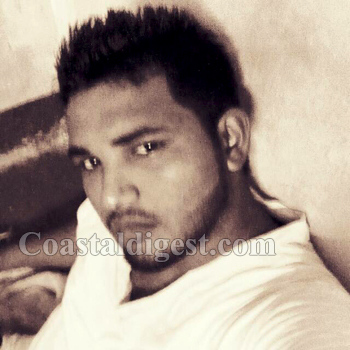Mangaluru, Apr 30: One of the sixth youths attacked by miscreants earlier this week under the limits of Ullal police station in Mangaluru taluk, succumbed to his injuries at a private hospital in the city on Saturday.
 Mohammed Safwan (20), a resident of Chembugudde near Thokkottu, who had been admitted to ICU at Unity Health Complex in the city, breathed his last without responding to any treatment, sources said.
Mohammed Safwan (20), a resident of Chembugudde near Thokkottu, who had been admitted to ICU at Unity Health Complex in the city, breathed his last without responding to any treatment, sources said.
He was attacked with lethal weapons by a gang of five miscreants on the night of April 26 near the overbridge at Thokkottu. The incident took place when Safwan and his two friends - Nizam and Saleem were returning home on a motorbike after finishing catering work at a wedding ceremony.
Even though the miscreants had targeted all three, Safwan had sustained severe injuries. In a bid to escape from the assailants all three had run in different directions.
In spite of his severe injury, Safwan started running and after reaching Kapikad, which is at least one kilometre away, he contacted one of his friends over phone and narrated the incident. Soon his friends Abdul Samad and Nazrat reached the spot and took him to a hospital.
Safwan, who hail from a poor family, is survived by his mother, three brothers and two sisters. His near ones has requested the district administration to give compensation to his family.
Police have already arrested five accused in connection with the stabbing. They said that the intention of the miscreants was to create trouble in the region and that all the victims were innocents.




Comments
Innalillahi wa inna ilaihi Rajiwoon
Innalillahi wa inna ilaihi rajivoon
Inna lillahi wa inna ilahi rajivoon
Inna Lillahi wa inna ilahi rajihoon.
Inna lillahi wainna ilaihi rajihoon
why this communal outfits only targeting innocent, really sad to hear his death.
this is not india, turning to be something else. india means place of humanity,. condolence to the family.
Inna lillahi wainna ilaihi rajihoon, may allah give strength to his family to bear his loss.,
heartfelt Condolences to the Family. finally communal outfits achieved their goal.
Inna lillahi wainna ilaihi rajihoon
really sad, police must catch the culprit and kill them in the same way as this innocent dead..
really sad to the humanity, he is returning back from the work, and suddenly some people attacked him. must kill them in the same way.
Add new comment